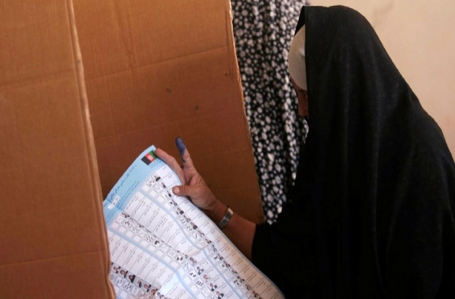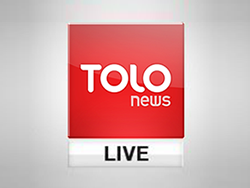
The self-imposed deadline for the Independent Election Commission (IEC) to publish the preliminary list of Presidential and Provincial Council candidates came and went on Saturday with no names released. The release has been reportedly pushed back to Tuesday.
According to the IEC's "Election Timeline," the release of the preliminary list of eligible candidates for the April elections was meant to occur on October 19, with the final list published on November 16. However, with a three-day delay, it is likely the schedule for the final list's release will need to be adjusted as well.
Doubts about whether or not the IEC was going to be able to release the preliminary list on time circulated earlier this week. Commissioners of the IEC had said on Friday that 80% of the candidates were vetted, but they suspected the process would not be completed by the deadline on Saturday.
Officials from the Free and Fair Election Foundation of Afghanistan (FEFA) criticized the delay and said that it could increase the likelihood of the process being improperly influenced.
"The delay in the announcement of the list is suspicious, and undermines the transparency and reputation of this process," said Muhammad Fahim Naeemi, FEFA's spokesman.
The candidate vetting process began on October 7, after the nomination process had ended the day before. Twenty-seven Presidential tickets registered and 2,327 candidates filed for the Provincial Council elections. The IEC has overseen the evaluation process alongside the Electoral Complaints Commission (ECC) and Ministry of Foreign Affairs, approving nominations that meet the stipulated standards and eliminating those who do not.
The ECC announced on Saturday that it had recieved 16 complaints against candidates registered for either the Presidential or Provincial elections. Whether or not the ECC's vetting of these complaints played into the delay of the preliminary list release is unknown. In fact, virtually nothing is known about why exactly the delay has occured.
FEFA officials expressed frustration about the lack of transparency, and being excluded from the vetting process.
"One of our major concerns is that the Independent Elections Commission is not allowing us to be part of documents review for the Presidential and Provincial Council candidates," said Naeemi.
The legitimacy of the spring election process is of great concern to Afghan officials, the public and foreign observers alike. With the Presidential elections being the first without President Hamid Karzai participating, and coming the same year as the coalition troop withdraw, many regard the elections as a pivotal test of credibility for the government system that has presided over Afghanistan since the fall of the Taliban in 2001.
With still no list of candidates published, speculations about who is the favorite to lead that system into the post-2014 future remain nothing but conjecture. And it looks like it will be another three days before they become anything more.



